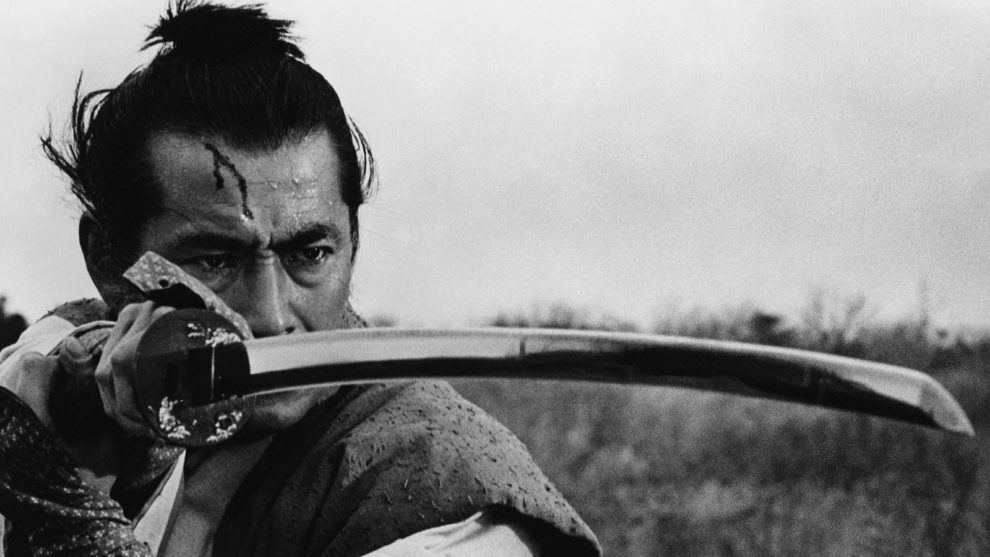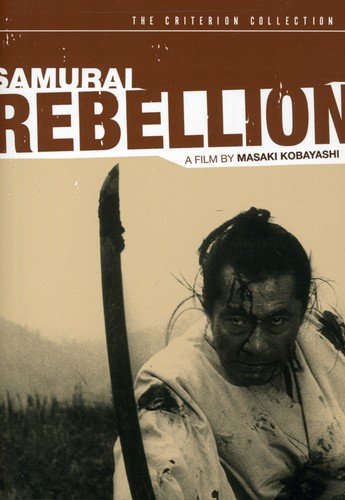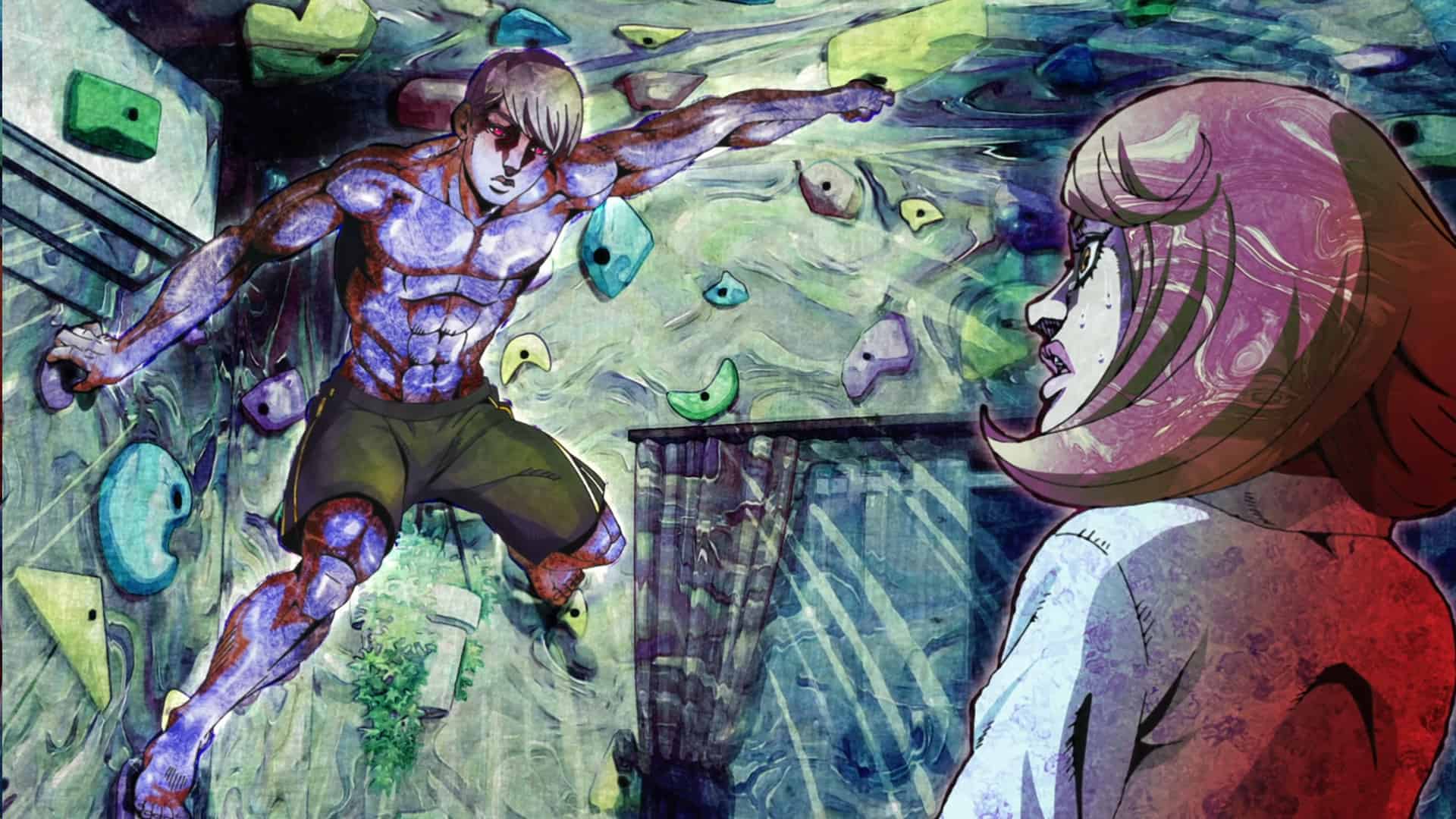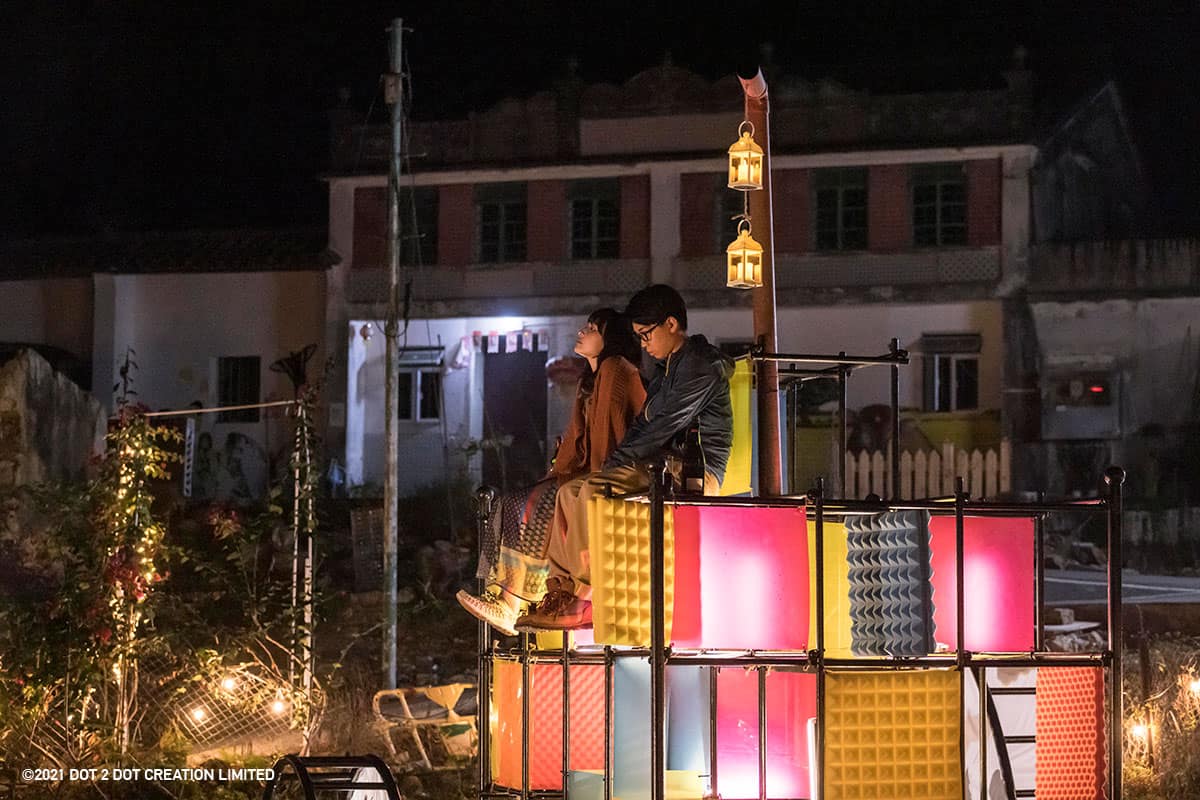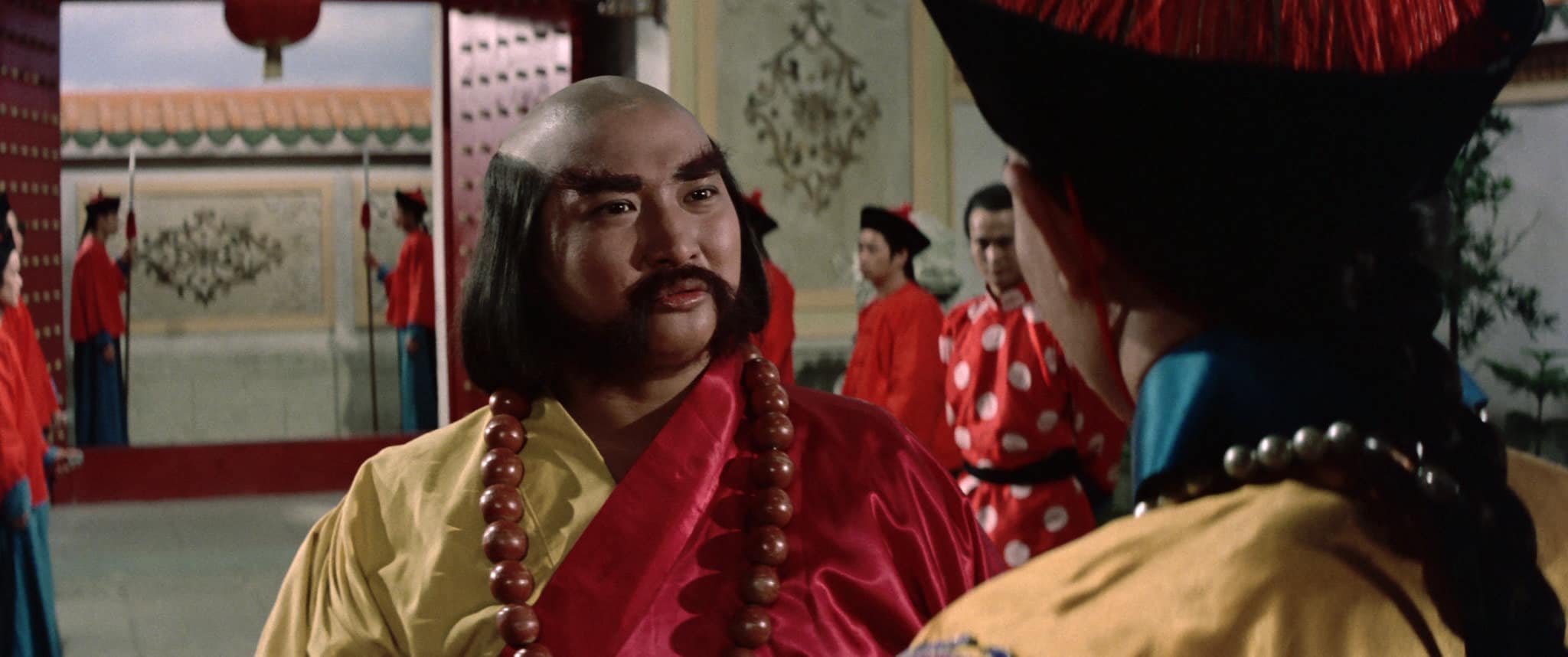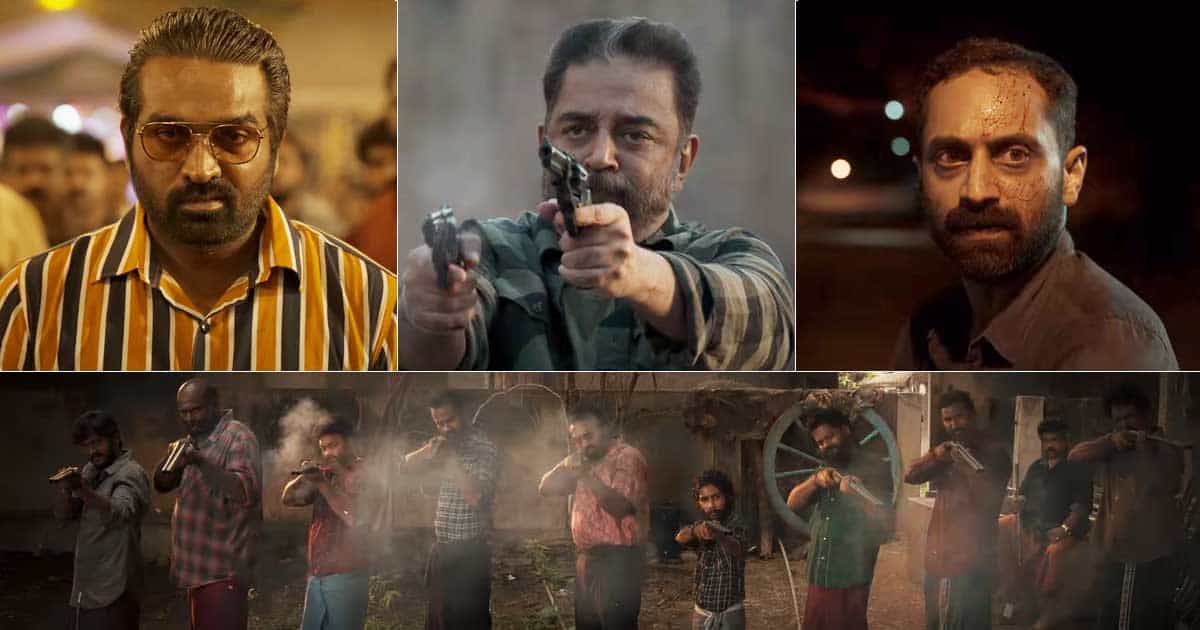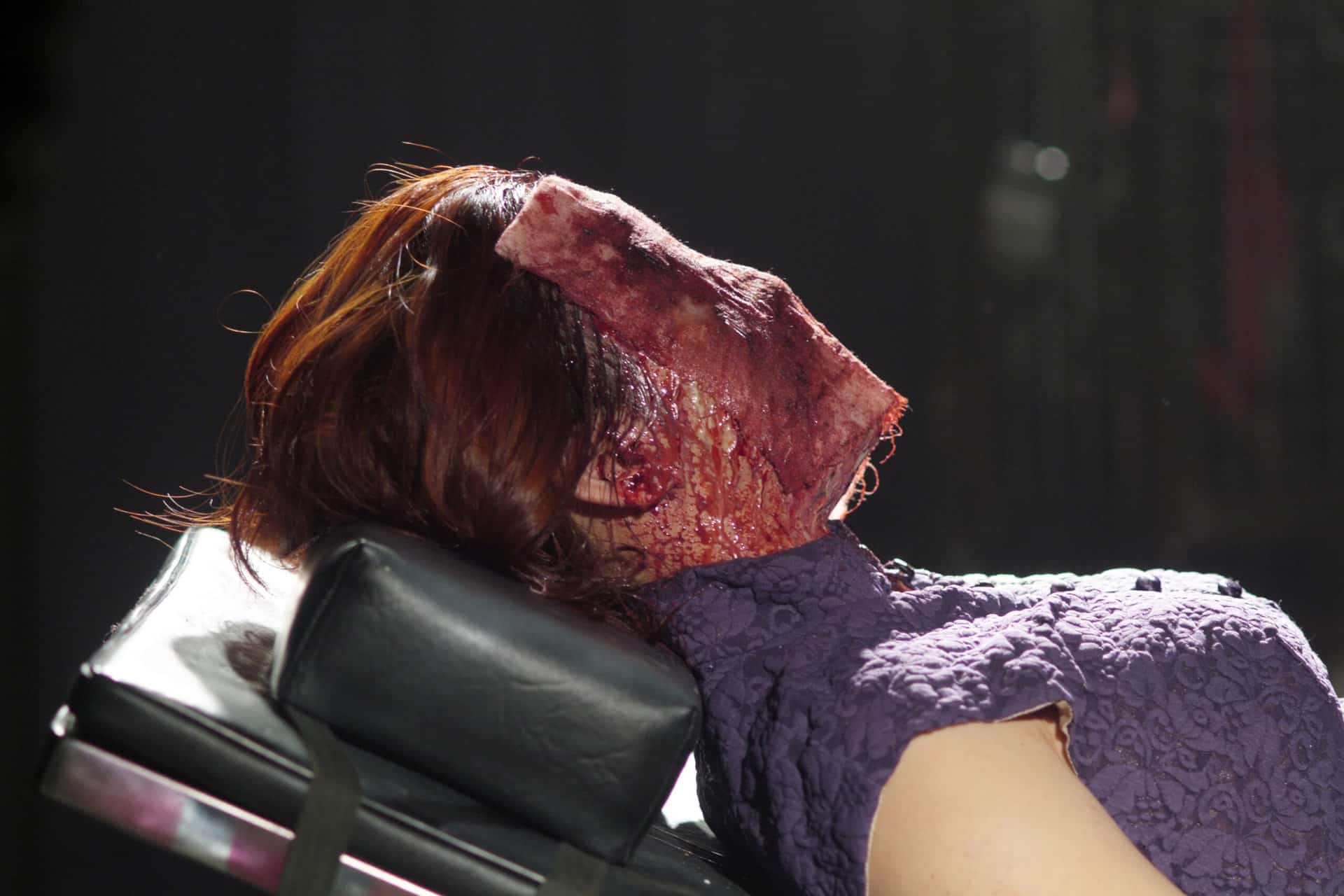Masaki Kobayashi was a filmmaker who was never afraid to speak his mind on a matter. He was always open with his mindset, regularly criticizing systematic corruption and violation of human rights throughout the majority of his filmography. He didn't often direct jidaigeki cinema, but when he did, the director generally delivered a stellar picture. His haunting masterpiece “Harakiri” gives a darker examination of the flawed aspects of the Bushido Code. Kobayashi would bring corruption and humanism to the forefront in his excellent film “Samurai Rebellion.”
The original Japanese title for the feature translates to “Rebellion: Receive the Wife,” which is fitting, considering what transpires within the story. The movie is based on Yasuhiko Takiguchi's short story “Hairyozuma shimatsu.” The screenplay is written by acclaimed screenwriter Shinobu Hashimoto, who had previously collaborated with Masaki Kobayashi on his samurai movie “Harakiri.” This project would also mark the only time Kobayashi would work with renowned actor Toshiro Mifune. “Samurai Rebellion” is hailed as one of the greatest Japanese films ever made, with many viewers even considering it the director's finest work.
Isaburo Sasahara is an aging samurai living a fairly quiet but mundane life. He shares a strong connection with his son Yogoro, while the rest of the family is cold and more concerned about upholding status and an honorable image. Isaburo receives orders from the Aizu clan, which he serves under, that his son is to marry the lord's former mistress Ichi, who was discharged for alleged troubling behavior. Upon being taken in by the family, she is revealed to be a kind and caring person. The supposed honorable ruler took advantage of the young woman and her rebelling against his despicable behavior led to her being thrown out. She and Yogoro fall in love and have a child they name Tomi, and Isaburo accepts her as his daughter while also being a loving grandfather to the baby. All seems well until the clan lord orders her to be returned. Ichi is horrified by this, and both Isaburo and Yogoro are also against this, leading to a rebellion against the corrupt system they once served under, even if it means the collapse of their family.
The story is gripping, cleverly revealing its narrative with plenty of twists and turns that eventually come full circle in the tragic finale. Like with many of his other works, Masaki Kobayashi promotes the ideas of individuality and standing up against systematic corruption, and includes a message promoting independence. All of this is greatly encompassed by the movie's lead. The character of Isaburo Sasahara is initially submissive to the clan he serves. Yet, upon learning of the injustices and loved ones being in danger, he stands up for himself. The themes also hit home with the picture's female lead. Quite a number of Kobayashi's works follow women struggling through harsh oppression, who fight for their independence, a great example being his film “The Inheritance.” In “Samurai Rebellion,” Ichi is forced to obey the despicable daimyo but stands up for herself as a person by being a freethinker and not kowtowing to inhumane treatment.
The movie tears down the often romanticized perception of the way of the samurai. Many often glossed over just how cruel life in feudal Japan could be, and no matter how strong the dynamics between loved ones may be, those in power were strangers to abusing their power and harming others with no remorse.
Many terrific actors appear in “Samurai Rebellion,” all of whom do stellar work here. Toshiro Mifune is fantastic as Isaburo Sasahara, bringing much humanity to his character as a loving father and grandfather, standing up for himself while also trying to protect those he deeply loves. Yoko Tsukasa does a wonderful job as Ichi Sasahara, a tragic character oppressed by the system she was born within. She is initially built up to be a shady character because of the gossip surrounding her. However, she is eventually revealed to be a kind and gentle person who was taken advantage by the eccentric figures in power. Like her stepfather and husband, she finally embraces her individualism against cruel oppression, even if it comes at a price. Go Kato also brings a ton of sadness to his portrayal of Yogoro Sasahara, who slowly realizes the dark side of Bushido and the cold, distant emotions of those around him, besides his father and wife. Tatsuya Nakadai brings tragedy to his role as Tatewaki Asano, Isaburo's friend, who falls victim to systematic corruption due to his devotion as a samurai. He knows and shows distaste for the misguided authority but still dedicates his life to being a warrior. The scenes of Mifune and Nakadai sharing the screen together are major highlights of the film. Another noteworthy performance in the movie comes from Etsuko Ichihara as a caring nurse named Kiku who helps care for baby Tomi as the Sasahara family gets caught up in conflict.
As is typical with the work of Masaki Kobayashi, impressive set pieces are on display, topped with excellent cinematography by Kazuo Yamada. Also great are the lighting and editing. Much like in some of his other works, such as “Harakiri” and “The Human Condition,” Kobayashi throws in brutal violence that serves a purpose to what transpires in the narrative. “Samurai Rebellion” cleverly saves the action for the third act as all the built-up emotions eventually explode in the violent finale. This includes Isaburo going up against multiple warriors at once and a bittersweet one-on-one fight between him and another significant character in the story. Toru Takemitsu provides an effective atmospheric music score for the film, used appropriately in just the right moments.
“Samurai Rebellion” is a great movie that further showcases Masaki Kobayashi's talents as a filmmaker. The movie tells a tragic and compelling story that becomes more suspenseful as it continues. The acting from the entire cast is top-notch, featuring one of Toshiro Mifune's most memorable performances of his acting career. It is well-paced and leads to a thrilling climax with an unforgettable ending that will stick with viewers. It is a haunting tale of a rebellion against corruption.


